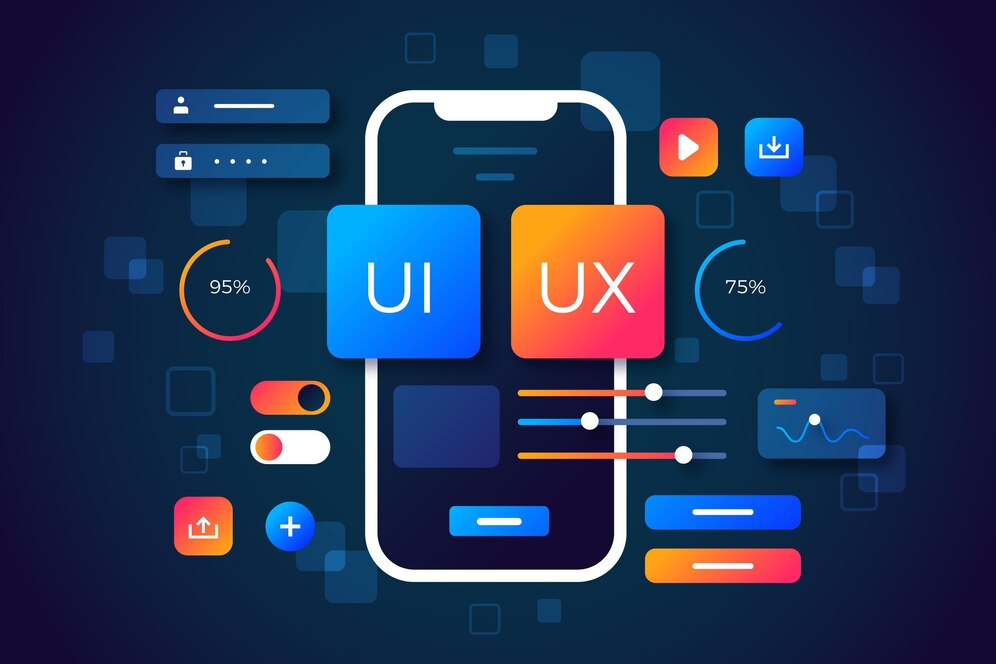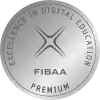
User Experience (UX) Design
The User Experience (UX) Design course is designed to equip learners with the skills and knowledge needed to create user-friendly and engaging digital products. This course covers fundamental UX principles, user research methods, wireframing and prototyping, usability testing, and the use of industry-standard design tools. Participants will learn how to design intuitive interfaces and enhance the overall user experience for websites, mobile apps, and other digital platforms.
Overview

User Experience (UX) Design
Course Learning Objectives
The "UX Design" course is designed to provide students with a comprehensive understanding of user experience (UX) design principles and practices. This course covers the entire UX design process, including user research, information architecture, wireframing, prototyping, usability testing, and interaction design. Students will learn how to create user-centered designs that enhance the usability and satisfaction of digital products. The course emphasizes practical skills and knowledge needed to design effective and engaging user experiences. Course Learning Outcomes (CLOs) Introduction to UX Design: Understand the fundamental principles and importance of UX design. Recognize the role of a UX designer in the product development process. User Research and Analysis: Conduct user research to gather insights about user needs and behaviors. Analyze research data to create user personas and scenarios. Information Architecture: Develop information architecture to organize and structure content effectively. Create sitemaps and navigation schemes that enhance usability. Wireframing and Prototyping: Create wireframes to outline the structure and layout of user interfaces. Develop interactive prototypes to test and refine design concepts. Interaction Design: Design interactive elements that enhance user engagement and experience. Apply principles of interaction design to create intuitive user interfaces. Usability Testing: Conduct usability testing to evaluate the effectiveness of designs. Analyze usability test results to identify areas for improvement. Visual Design Principles: Apply visual design principles to create aesthetically pleasing and functional interfaces. Understand the impact of typography, color, and imagery on user experience. UX Design Tools and Software: Gain proficiency in using industry-standard UX design tools and software. Apply tools to create and communicate design solutions effectively. Student Learning Outcomes (SLOs) Understanding of UX Design Principles: Demonstrate a solid understanding of UX design concepts and their importance in product development. Explain the role of UX design in enhancing user satisfaction and engagement. User Research Skills: Conduct effective user research using various methods such as interviews, surveys, and observations. Analyze research data to create detailed user personas and scenarios. Information Architecture Competence: Develop clear and logical information architecture for digital products. Create sitemaps and navigation structures that improve usability. Wireframing and Prototyping Abilities: Create wireframes that outline the structure and functionality of user interfaces. Develop interactive prototypes to test design concepts and gather user feedback. Interaction Design Proficiency: Design interactive elements that are intuitive and enhance the user experience. Apply interaction design principles to create user-friendly interfaces. Usability Testing Expertise: Plan and conduct usability tests to evaluate design effectiveness. Analyze and interpret usability test results to improve design solutions.

Benefits
With AI, the world is your oyster! It is an emerging field, rapidly growing, ever evolving and watched with a keen eye by industries and markets globally. There are many benefits to an education in AI:
In demand Career
With a Bachelor in artificial intelligence you are equipped with in-demand skills in the rapidly growing field of AI. Knowledge of developing AI systems, data analysis and AI techniques makes you valuable across industries, right from healthcare, finance, tech and more. This degree prepares you for career that has multiple options for diversification. AI professionals include AI engineers, data scientists, machine learning specialists, AI consultants, researchers and more. AI is transformative technology that is revolutionising the world. With an education background in AI, you are set up in an in-demand career field with an exciting future ahead!
Innovation and advancement
Applied AI is all about finding solutions and using AI systems to make life simpler. Applied AI draws on its solid foundation in Computer Science to analyse and provide solutions for real world challenges. You are prepared to address complex problems and contribute meaningfully in domains like healthcare diagnostics, fraud detection, autonomous vehicles, personalised recommendations and more. Being able to apply AI techniques for solving tasks makes for an extremely rewarding and impactful job role!
Solving real world problems
AI aims to constantly bridge the gap between natural intelligence and machine learning - it is a field of cutting edge research, innovation and advancing technology. This makes it ever evolving, with new algorithms, models and techniques being developed. By studying AI at an undergraduate level, you gain a strong foundation in AI fundamentals that help you better understand the latest advancements. You step into a career that empowers you to push the boundaries of AI, contribute to research and development and drive innovation in the field.
100% International
Study at your own pace from anywhere in the world
Recommended by 96% of our graduates
According to our latest alumni survey
50,000+ students
enrolled in Germany’s largest university
Study contents
Contents
A User Experience (UX) Design short course typically covers essential concepts, methodologies, and practical skills necessary to understand and create effective user experiences for digital products and services. Here's an outline of the study contents you might expect in such a course:
The course aims to introduce participants to the principles, processes, and tools used in UX design, focusing on enhancing user satisfaction and usability through thoughtful design.
Study Contents:
Admission
Admission Criteria
Careers
Start your career now
UX Designer:
UI Designer:
Usability Analyst/UX Researcher:
Conduct usability testing and research to evaluate the effectiveness and usability of digital products. Gather user feedback, analyze data, and provide insights to inform design improvements and optimizations.
Student reviews
Coming Soon.
Tuition fees
All our study programmes include the following benefits
- Teaching and study material
- Marking of your end-of-module exams
- Monthly live and recorded tutorials
- Use of the online campus
- Individual study coaching
- Online exams
- Career coaching
- Learn English for free
Our global recognition

IU is recognised by WES Canada and U.S., which means your degree can be converted to points in the local system for purposes of immigration, work, or studies.

As the first EU institution in UNESCO's Global Education Coalition, IU is committed to ensuring accessible quality education to students in crisis worldwide through free online micro-credentials.
Our company partners

For over 20 years, IU has established partnerships with leading global companies. This offers you the chance to gain firsthand experience through internships and projects and allow us to adapt our learning content to the ever-evolving needs of the labour market. You'll benefit from an education designed to bridge the gap between theory and real-world practice, ensuring your readiness for your future career.
Recognition
Recognition of previous achievements
Have you already completed a training course, studied at a university or gained work experience? Have you completed a course or a learning path through EPIBM LinkedIn Learning, and earned a certificate? Then you have the opportunity to get your previous achievements recognised, and complete your studies at EPIBM sooner.

Save time:
Skip individual modules or whole semesters!
Even before you apply for a study programme, we’ll gladly check whether we can take your previous achievements into account: 100% online, no strings attached. Simply fill in our recognition application form, which you can find under the content section of each study programme's webpage, and upload it via our upload section. You can also e-mail it to us, or send it via post.
Send an email to [email protected] to find out which previous achievements you can get recognised. You can get your previous achievements recognised during your studies.
Recognition files
Autonomous vehicles developer
With AI, the world is your oyster! It is an emerging field, rapidly growing, ever evolving and watched with a keen eye by industries and markets globally. There are many benefits to an education in AI:
That’s why after graduating, you’ll be able to apply your professional skills and knowledge, and work for development teams at any sector you find appealing.


Augmented reality (AR/VR) developer
Virtual (or augmented) reality isn’t all just fun and games, as great and enjoyable as that aspect is. It can also be used for groundbreaking social and psychological research, defensive purposes and therapy.
With an Applied Artificial Intelligence degree from IU University of Applied Sciences, you can take part in this vital field of technological development, and work on a wide variety of interesting projects.
Change what the world thinks about the possibilities that AI offers, and make a real difference in people’s lives, while enjoying every step of the process.
F.A.Q
Frequently Asked Questions
You might also be interested in these study programmes
Accredited and certified













